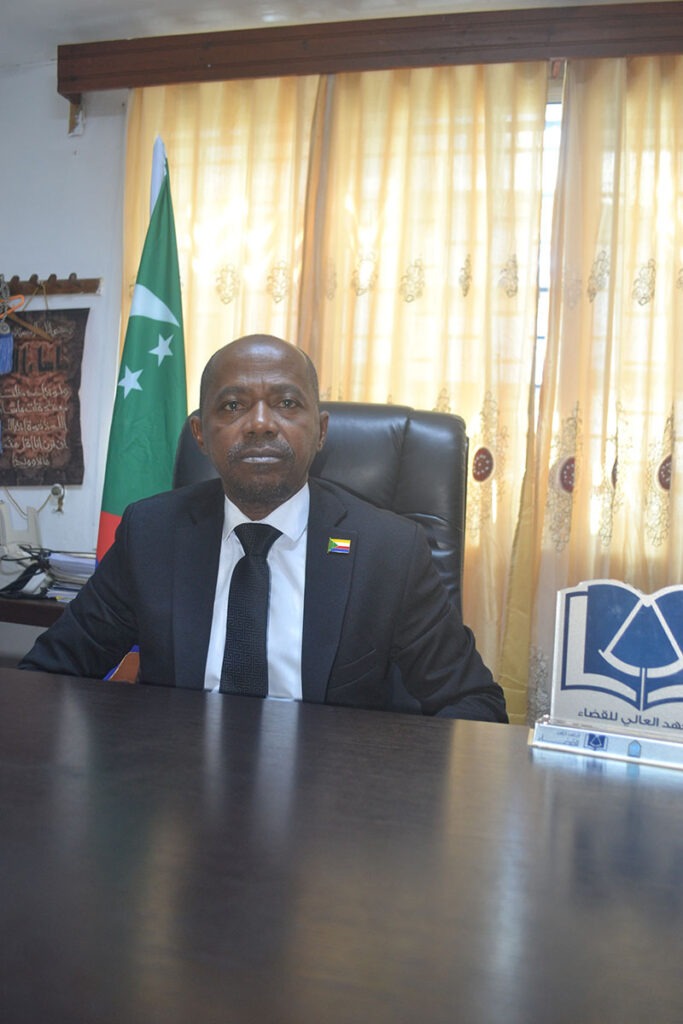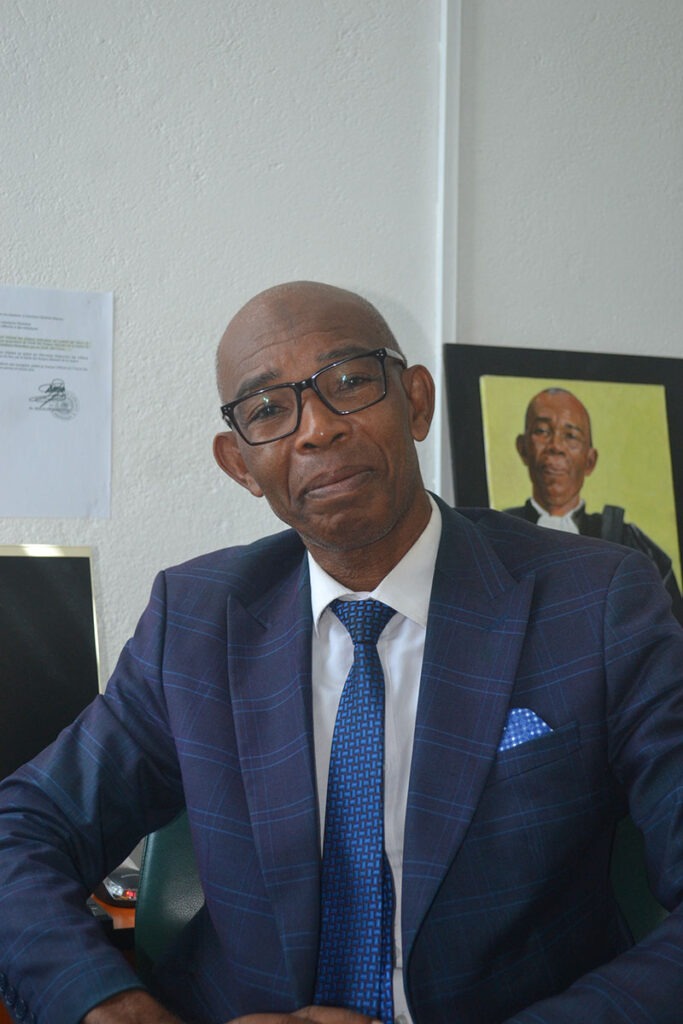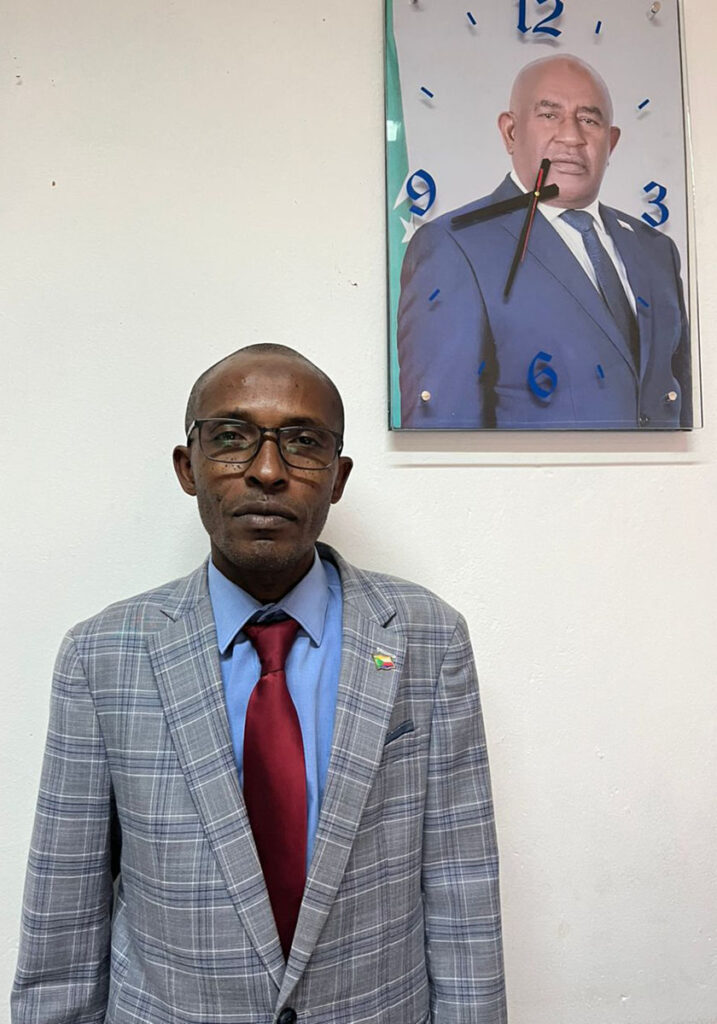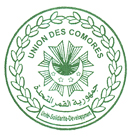The Ministry
Justice is one of the core sovereign functions of the State. It is administered by the Ministry of Justice, Islamic Affairs, and Civil Service, which is also responsible for Human Rights, Transparency, and Public Administration.
Mission
The Ministry of Justice is the central Comorian administration responsible for managing justice resources, directing judicial and public policy, handling individuals entrusted to it by judicial authorities, overseeing the civil service, Islamic affairs, and Human Rights.
- The Ministry of Justice prepares legislative and regulatory texts in coordination with the Presidency in many areas: family law, civil procedure, criminal procedure, penitentiary administration…
- It ensures the proper functioning of the courts (tribunals and courts of appeal). As such, it manages budgetary resources as well as human and material means (equipment, buildings, IT).
- It is responsible for individuals entrusted to it by judicial authority: minors in conflict with the law or in danger, convicted persons, or those awaiting trial.
- It defines and implements public policies in the fields of justice and human rights: access to law and justice, fight against sexual and domestic violence…
- It ensures the proper functioning of the judicial system: This includes regular monitoring of activities, coordination between entities (ATMO, UGP, Ministry services), and promoting decision-making to improve service organization.
- It guarantees initial and ongoing training for justice professionals: The Ministry is actively involved in the training of justice auditors and clerks, and in sustaining training activities, including continuing and specialized legal education.
- It supports the central administration and the judiciary: This includes providing technical resources for the reorganization of the justice department, supporting training deployment in the islands, and assisting in designing a Strategic Justice Plan.
More broadly, it contributes to the reform and modernization of the justice sector.
Organization
The General Secretariat of the Ministry of Justice coordinates the administrative, financial, and logistical activities of the ministry. It oversees budget preparation and execution, ensures compliance with public management rules, and supervises human resources management.
The Secretary General, a senior administrative official, is responsible for planning, initiating, coordinating, monitoring, and evaluating all activities of the ministry’s central and decentralized services. She ensures administrative coherence and monitors the proper implementation of the strategic orientations defined by the Minister.
She reviews and submits to the Minister for signature all acts originating from the ministry’s departments, guaranteeing their administrative and legal compliance.
She also supervises the work of the General Directorate of Civil Service, the General Directorate of Judicial Affairs, the Directorate of Financial Affairs, and ensures technical coordination with other ministries, institutions, and external partners.
Finally, the Secretary General ensures the continuity of the ministry’s administrative operations. In the event of the Minister’s absence or incapacity, she assumes the interim in areas under administrative authority, excluding those involving the political responsibility of the Minister as a member of the Government.
The General Directorate of Judicial Affairs is responsible for developing and ensuring the implementation of the State’s policy in the field of justice administration.
It is specifically tasked with:
- Planning the development of the judicial system under the authority of the State;
- Ensuring the qualitative and quantitative development of personnel within the judiciary;
- Collecting, maintaining, and disseminating documentation on legal and judicial information;
- Participating in the drafting of laws and regulations;
- Managing international relations in matters of judicial cooperation and the protection of human rights and public freedoms;
- Processing cases related to pardons, parole, and naturalization;
- Providing legal assistance on behalf of the State;
- Overseeing the proper organization of the State’s judicial system and monitoring its performance.
The Comorian Civil Service is one of the pillars of national governance; it is the umbilical cord that unites the three islands forming the Administration of the Union of the Comoros.
The General Directorate of the Civil Service is the administrative body responsible for human-resources management and career paths within the public administration. It is headed by a Director-General appointed by presidential decree and supported on each island by a Regional Directorate.
The Directorate manages the staff file for both central administration and the autonomous islands.
The computerized file-management system (GISE) does not facilitate career management for State officials governed by the General Statute; it merely synchronizes certain administrative data with salary elements to produce the payroll chain. For harmonized and efficient workforce management, career-management data must be integrated into the regular IT system.
Structure of the General Directorate
- General Inspectorate Service – provided for in the organigram but lacking a legal framework; it should be restructured to fulfill its prerogatives.
- Directorate of Administrative and Institutional Reforms – not legally established; acts as a legal advisory, monitoring and evaluation unit.
- Directorate of Career and Staff Management – replaces the former “Routine Management” directorate.
- Directorate of the IT Center – the nerve center; any erroneous data can have budgetary repercussions.
- Archives Service – collects, classifies and preserves staff records.
Regional Directorate
Each autonomous island hosts a Regional Directorate of the Civil Service as an extension of the General Directorate. It is headed by a Regional Director appointed by the Minister in charge. These bodies are the former island-level directorates now acting as deconcentrated units; their staff are paid by the Ministry.
Restructuring the General Directorate
Law No. 04-006/AU (10 Nov 2004), promulgated by Decree No. 05-005/PR (24 Jan 2005), stipulated that every entity must “manage State employees’ careers.” The 2018 Constitution, however, centralizes this responsibility in the Ministry of the Civil Service. Lacking clear implementing texts, the Director-General now focuses mainly on day-to-day payroll head-counts, while Regional Directorates struggle with their mandate—slowing HR processes and sidelining career management, thus fueling staff complaints.
Reform proposals
- Count staff in each entity (central administration and islands).
- Restructure the General Directorate and its island branches.
- Perform vertical staff audits by structure to ensure employees serve in their user ministry.
- Amend Law 04-006/AU and Decree 11-078/PR to align with the new Constitution.
- Update ministerial organigrams.
- Harmonize service names nationwide.
General Directorate of Islamic Affairs
General Directorate of Prison Administration
Placed under the authority of the Ministry of Justice and headed by a General Delegate, the General Delegation for Human Rights is responsible for:
- Promoting Human Rights;
- Monitoring the implementation of Human-Rights conventions and treaties ratified by the Comoros;
- Carrying out studies that contribute to drafting a national charter and a governmental policy for the promotion of Human Rights;
- Initiating and participating in any legislative or regulatory project aimed at the promotion and protection of Human Rights.
In addition, it undertakes initiatives toward associations, non-governmental organizations, and international bodies working in the defense and promotion of human rights.
Founding Decree: Decree No. 01-076/CE of 19 June 2001 establishing the General Delegation for Human Rights.
General Inspectorate of Justice
The organizational framework and the missions of the Ministry are defined in the following texts:
-
Decree No. 09–023/PR of March 7, 2009, establishing the organizational framework of the Ministry of Justice, Penitentiary Administration, and Islamic Affairs, responsible for Relations with Parliament and Island Institutions.
-
Decree No. 11–078/PR of May 30, 2011, on the general reorganization and missions of the services and Ministries of the Union of the Comoros, as amended by Decrees No. 11–139/PR of July 12, 2011, and 16–102/PR of June 14, 2016.
Our Team

M. Anfani Hamada Bacar
Minister of Justice, Islamic Affairs and Civil Service, in charge of Human Rights and Public Administrations

M. Ali Soilihi
Directeur général des affaires judiciaires (DGAJ)

M. Omar Chehani
Directeur général de la fonction publique (DGFOP)

